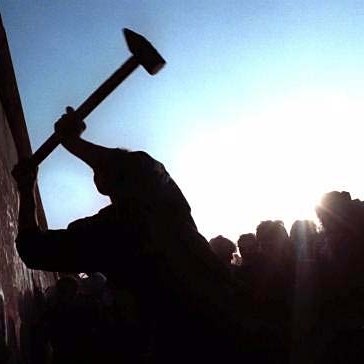Regretfully, anti-European rhetoric in Russia is on the rise. The Russia Today TV Channel (“RT”) readily covers the most Euro-skeptic parties all across Europe. Pseudo-scholars like Alexander Dugin contemplate Russia's chances to subsume the crisis-ridden Europe. Fiodor Lukianov, a pro-Kremlin journalist and the head of the Council for Foreign and Defense Policy, referring to the reelection of an elderly Italian President, mocks European politics for its alleged inability to give floor to a new generation of young politicians. The Valdai Club engages in a more sophisticated discourse, misrepresenting the pro-European sentiments in Russia as liberal (one of the most negatively marked words in the vocabulary of the Putin regime), and then ritually asking a question of whether a European choice exists at all. Newspaper titles like "We are not Europeans? Thank goodness!" seem to nicely reflect a Kremlin-fostered mood in Russia. Against this background, it is only logical that Russia and the EU failed to talk business in the Cyprus financial crisis.
The Russian version of Euro-skepticism is an interesting phenomenon since it develops in a country with neither intentions nor chances to join the EU. Thus, unlike similar platforms within the EU, the Russian anti-European discourse is much more political than economically based. In previous years, the Kremlin was trying to play a more sophisticated language-game of formally accepting the key European normative signifiers (democracy, human rights, etc.) yet simultaneously infusing their own (sometimes implicitly non-European) meanings in them. Nowadays, the strategy is simplified, and a less nuanced and more clearly articulated anti-European narrative.
Moscow lambasts the EU—and the West in general—to English-speaking audiences, with RT targeting not Russia's near abroad but viewers in the West. RT analysts Andranik Migranian and Natalia Narochnitskaya promote the Kremlin version of democracy as heads of the Institute for Development and Cooperation not in Kyiv or Yerevan, but in New York and Paris.
But Moscow is not fully sincere in celebrating Europe's downfall. Is Europe indeed as weak and unattractive as many in Moscow try to depict it? Don't we need a more politically neutral and balanced "optics" to view Europe in all its diversity? It is exactly these questions that were discussed a few days ago quite far from the Russian capital, in the city of Tyumen, which hosted a workshop on "Russia and Germany in the Common Communicative Space.” Nota bene: the school was completely funded from Russian sources, which didn't make it less critical of Russian policies toward major European countries. Several dozen future specialists in international relations, regional studies, and political analysis apparently chose to treat Europe as an instructive object of research, even a riddle that makes us rebut simplified black-and-white interpretations of the world we live in. Even in crisis, the EU keeps expanding (Croatia is about to become another member state) and remains a magnet for sizeable constituencies in countries like Ukraine, Moldova, and Georgia. Within the EU, the relatively old regional groupings like the Weimar triangle and the Visegrad Four demonstrate a high degree of resilience and sustainability—something that is almost completely missing in the post-Soviet area.
Domestically, the European political community is busy with a very substantial and rich-in-meaning debate between proponents of a federalist future for the Union and those who favor a looser model of inter-governmental association. Nothing like this exists in Russia, which does not seem to care about sustaining its mostly rhetorical claims to play a pivotal role in the Eurasian Union project.
Internationally, EU diplomacy has achieved a successful breakthrough in mediating a rapprochement between Serbia and Kosovo. This is an important event, especially against the background of dominating skepticism about the possibilities of major powers to find solutions for break-away territories and the countries from which they have seceded. Russia, vociferously proclaiming itself the leader in post-Soviet Eurasia, lacks a successful record of conflict resolution. Perhaps, the new EU experience can be demanded in the frozen conflicts within the common EU-Russia neighborhood.
Of course, the Russian Foreign Ministry can—and most likely will—keep publishing its reports on human rights violations all across Europe. Of course, RT can keep continuing the unfinished Soviet job of revealing all the imperfections of Western democracies. Beyond Russia, this discourse is doomed to remain deeply reactive and repetitive. What is even worse, it will hardly get strong domestic resonance among the young generation of urban professionals. At least, even in Siberia, Europe is a fascinating object to study and learn from.
Andrey Makarychev is a Professor at the Institute of Government and Politics, University of Tartu, blogging for PONARS Eurasia on the Russia-EU neighborhood.









